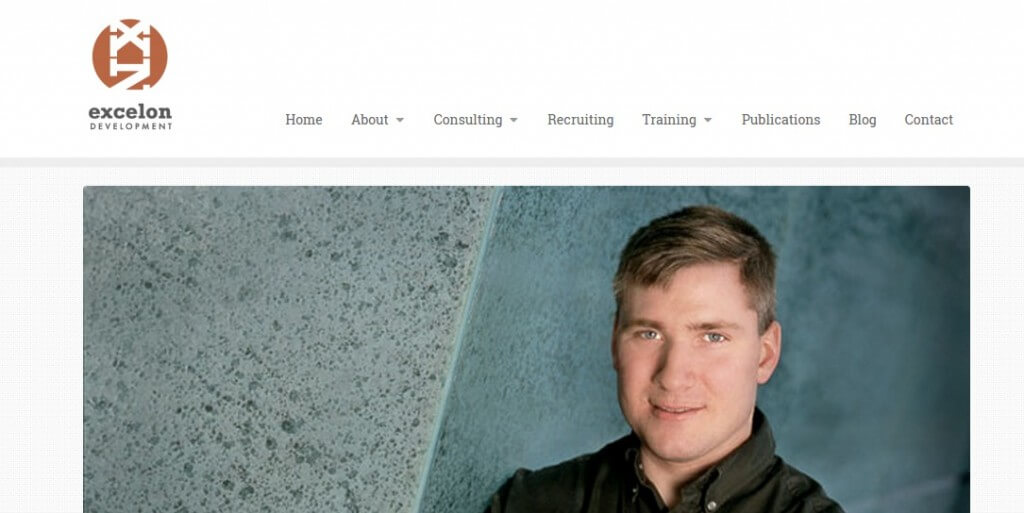We’re continuing to share a different story each week of how a past student has been able to significantly grow their freelance business by applying the concepts they learned from Double Your Freelancing (check out last week’s with Louis Grenier).
If you feel your story would be a good fit, share why.

Matthew Heusser is the founder of Excelon Development, a software delivery consulting. He went from making $600 on the side of his full-time job in 2004, to going full-time freelance in 2011. He’s stayed put ever since.
What got you into freelancing? Was it what you expected?
I went to graduate school at night, where all we did was write papers, present and pay for the privilege. After I graduated, in 2003, I kept writing, and proposed something for Dr. Dobbs Journal Online. They paid me — and I was hooked! 🙂
What’s been most challenging thus far?
I’d say lead generation — we are pretty good at closing once we have a solid lead. Early on in my career, I confused “solid leads” with “get to know you chit-chat”– as we’ve learned to slow down the sales process, my close rate is improving, because I don’t count on things so early.
Honestly, though, my biggest challenge lately is managing the growing business, keeping things on track and avoiding burnout.
Did you ever want to quit or give up? Please expand.
The entrepreneurial life involves a lot of rejection and a roller-coaster of emotions. I have at times had fears that no one liked me and I wouldn’t get more work. Each time that happened, within a couple of weeks, the phone rang, I had a new project and I stopped worrying.
I have been close to burnout and wanted a vacation, too. So close to despair and close to burnout, but quit? Never!
What were you struggling the most with when you ran into Double Your Freelancing Rate?
It can be lonely out there. Many people are socialized to get a job. The advice is to get a job or to “wait for something to happen” — they don’t understand that a great deal of the freelancer’s life is to make.something.happen. So finding a community of like-minded people was a bit of a struggle.
What are some big successes you’ve had recently?
Over the past few years we’ve done less bill-by-the-hour contracting and more consulting and managing subcontractors. This has been a very positive change for the business.
What are some specific strategies, tactics or pieces of advice that helped you grow?
Early on my contracting career, I was on-site at a client site five days a week, 40 hours a week and living out of a hotel four nights a week. That time was good for me because I could spend time at night building my reputation and studying. Someone told me I should manage other contractors at the next step and I said I had no interest. Four years later, it is something like 70% of our revenue. I am glad I changed my mind!
I like the idea of a sales funnel as opposed to the rain dance. In the rain dance, you just do a lot of stuff in the hope that action leads to gigs. It can, and does. Understanding how you communicate about your services, who your leads are, how strong they are — that really helps you plan. At first I thought the sales funnel had to be a formal e-mail reminder/CRM/landing page system — a Hubspot or Infusionsoft. Maybe, someday, we might get to that, but I’m learning to formalize the existing communication channels we are using right now.
What are you most excited about for your business in 2015?
We’re continuing to put systems in place to make work repeatable and growth plannable. I’m not saying we are planning the work well — but it is getting to be more and more possible. That’s good.
 The principal consultant at Excelon Development, Matt Heusser is probably best known for his writing. The lead author of “Save Our Scrum,” Senior Editor to “How to Reduce The Cost of Software Testing” and editor for Stickyminds.com, Matt is a former member of the board of directors for the Association for Software Testing. Matt took Excelon Development full-time in 2011, after developing, managing and testing software projects for fourteen years. He is the recipient of the 2014 “Most Influential Agile Test Professional Person” award from Agile Testing Days, a four-time agile conference speaker and three-time conference track chair. Connect with Matt via his website or on twitter @mheusser.
The principal consultant at Excelon Development, Matt Heusser is probably best known for his writing. The lead author of “Save Our Scrum,” Senior Editor to “How to Reduce The Cost of Software Testing” and editor for Stickyminds.com, Matt is a former member of the board of directors for the Association for Software Testing. Matt took Excelon Development full-time in 2011, after developing, managing and testing software projects for fourteen years. He is the recipient of the 2014 “Most Influential Agile Test Professional Person” award from Agile Testing Days, a four-time agile conference speaker and three-time conference track chair. Connect with Matt via his website or on twitter @mheusser.